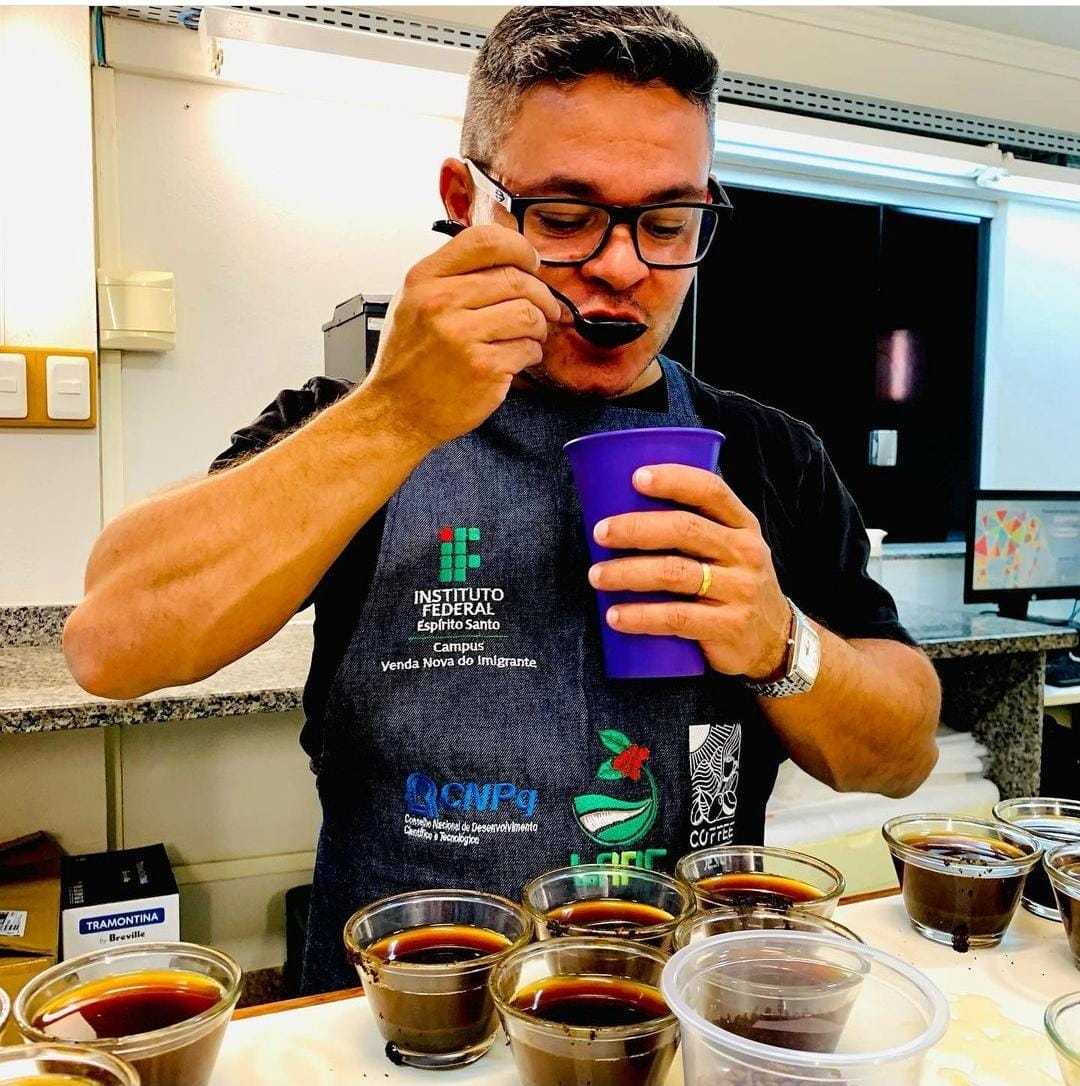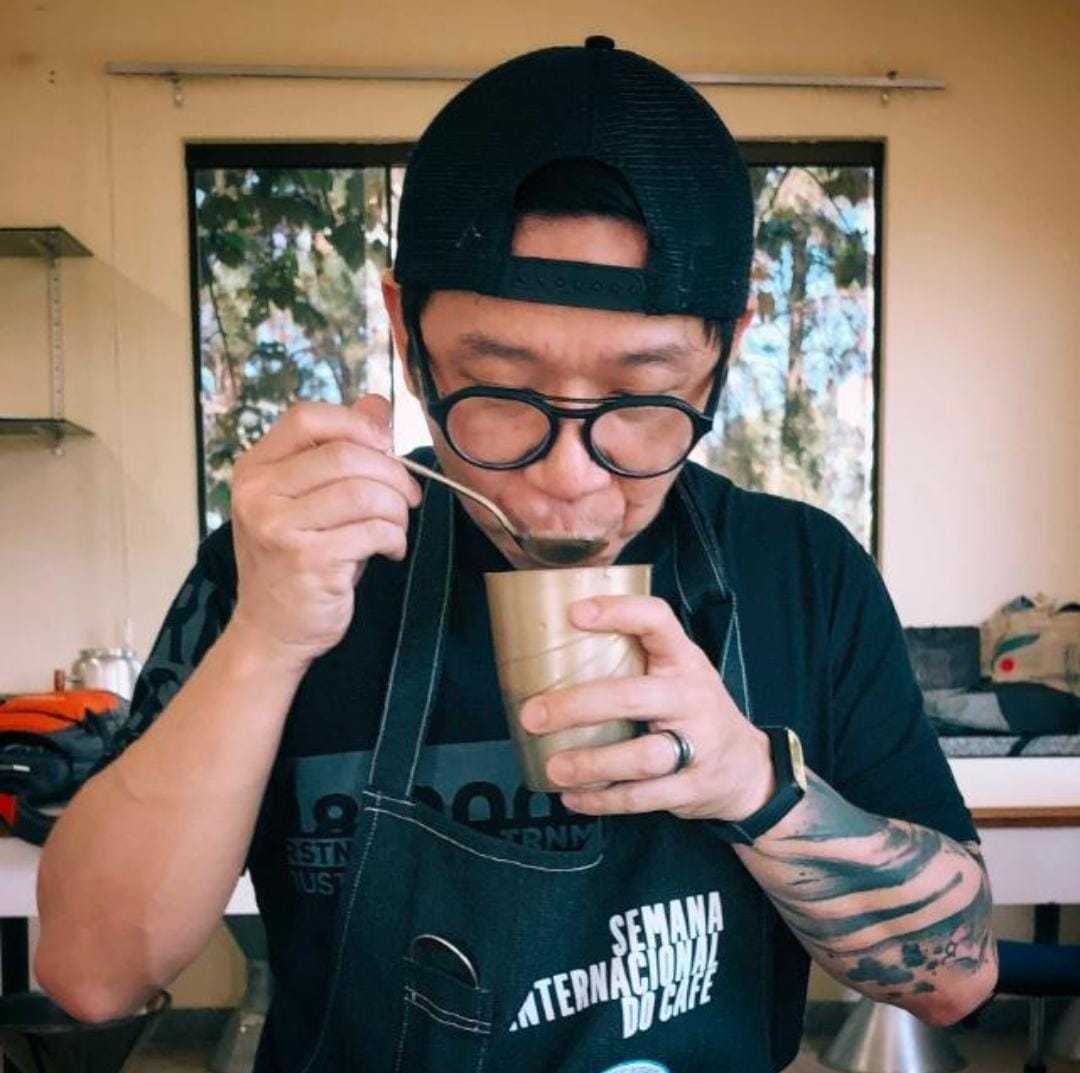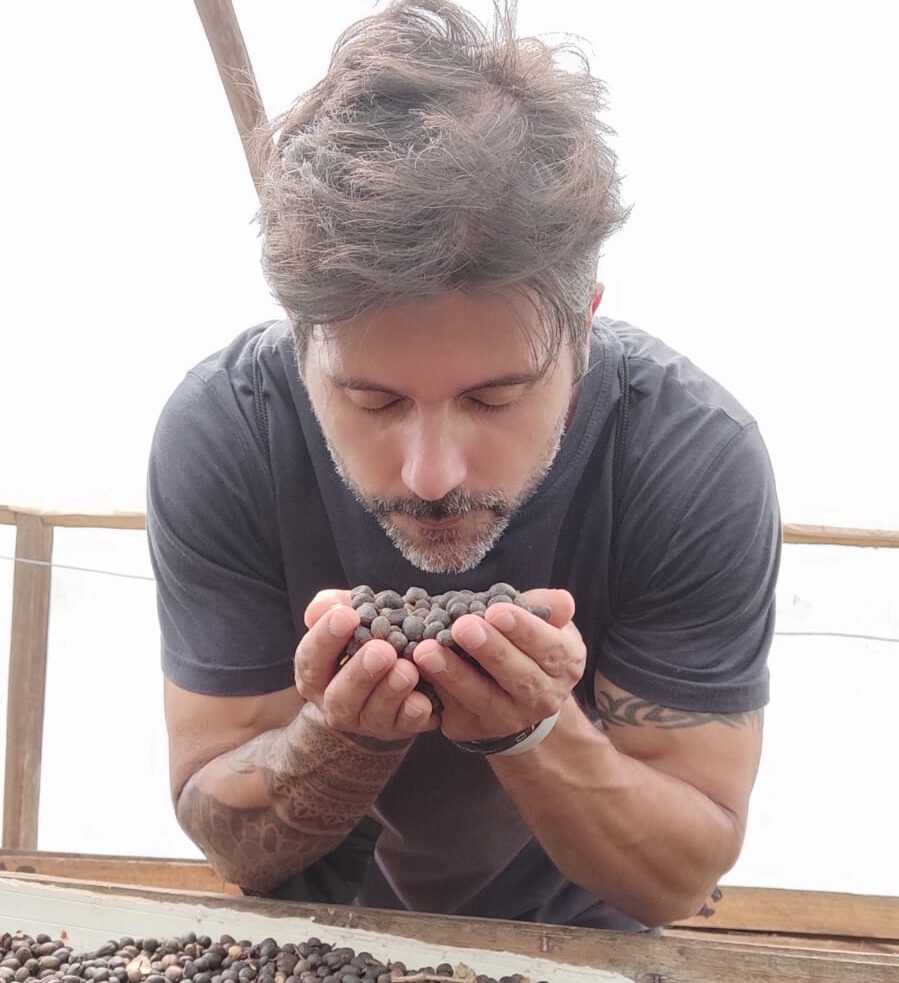MILAN – Travelling in recent years has become rather complicated, to the point that many have repeatedly given up moving from one country to another. A problem that has certainly influenced communication and relations between the origin and the opposite end of an already particularly long and complex chain: the growing countries and those who consume the cup are the two poles that should meet to raise the quality of what is drunk and the living conditions and wages of those who work on the plantations. The BootCamp Coffee Fields initiative acts as a bridge between these two distant realities, even more so in recent times: five days in the Brazilian fazenda, in direct contact with the land, the raw material and its processing. The project has a solid basis in theory and practice, and one of the people directly involved, Luis Fernando, barista, trainer and passionate bean scholar, coordinator of the initiative in Italy, told us about it.
The BootCamp Coffee Fields project will soon start in Italy: can you tell us how the idea came about, who started it and what exactly it consists of?
“Bootcamp Coffee Fields was born from the desire of Dr. Lucas Louzada, Phd and K.J. Yeung, Q-Grader and coffee specialist, to create a unique immersion experience in the world of quality beans in Brazil. They decided to bring together the best of theory and practice so that participants get the most out of it in terms of use and learning.

During 5 days in the field, Bootcamp participants will divide their time between activities in a research laboratory at an Institute of Higher Education and among coffee farms to attend lectures given by scientists specialising in the raw material and by producers. As a “course project“, each member will have the opportunity to create and design a 20 kg nano-batch. He or she will be able to harvest the bean by hand on the farms and follow all the processing steps.

At the end of the processing period, which will follow the stay in Brazil, the finished/processed product will be shipped to the home country of those who participated in the Coffee Fields BootCamp. During the actual immersion days, there will also be an educational part with a focus on roasting and tasting the coffees of the region to develop a deeper understanding of their aromatic characteristics. Participants can also decide to extend the experience package and visit some coffee shops in the cities of Vitória and São
Paulo, mainly to get in touch with the specialty coffee shop scene in two centres with very different urban profiles, for a total of 9 days”.
With the Covid obstacle, how in practice will it be possible to open coffee shops for people coming from the other side of the world?
“The organisation will take care of studying all the details for the moves, respecting and keeping up to date with the requirements set by the OMS to ensure the safety and well-being of the participants. Firstly, it will ensure compliance with the obligation to present documentation proving that the participant has taken the number of vaccines available as well as certification of a negative test carried out up to 72 hours before the trip. Participants will stay in single rooms (unless otherwise requested), masks will be compulsory during lessons and practices.”
How is it possible to be part of the group, what are the costs, when do you leave, how do I contact you?
“The event has just been launched on its official website and registrations will open shortly. Until the end of March, there will be a promotional price:
-the 7 day pass Regular 1049/ Early bild 939 package.
-the 9 day pass package Regular 1448/ Early bird 1338.
The organisation is still studying a special rate for groups. Details are available on the BootCamp Coffee Fields website.”
Let’s take a step back and get to know Luis Fernando better, who introduced us to the BootCamp Coffee Fields project
“I was born in Brazil in São Paulo on 26 June 1982. I lived there until I was ten years old when my brother and I were adopted by an Italian family. Six/seven years ago I wanted to stop working at night, as I started (I think like many young people) as a bartender. However, I didn’t want to stop working behind the bar, as I like working in contact with the public.
So I started looking for a specific professional course on coffee and I found my mentor, Andrea Antonelli, a great Street Coffee professional. Thanks to him I became passionate about this drink and the world behind the cup. From that day on, I haven’t stopped, taking part in various courses with different trainers, because I like to deal with different didactic approaches_ I think that everyone has something to give and everyone can convey information that completes the picture.”
In Brazil for training and culture in contact with farmers: what has this experience taught you and why is it so important?
“Three years ago I took a course on green coffee and tasting at Sindicafè (São Paulo coffee union) with a great professional, Camila Arcanjo, who is now part of my family. Thanks to her I threw myself into teaching: at first I always said no, because I didn’t feel ready and I still had to learn and get to know. Then this year, after being asked once again for a basic latte art course, I finally decided to accept her invitation, collaborating with the Espresso Academy in Florence, for which I work today.
I had also put in my diary a visit to the De Lacerda family’s fazenda Forquilha do Rio in Caparaò, with whom I was already in contact. I have always followed the developments of Coffee of the Years and had noticed that the Caparaò and Esprito Santo regions had won several awards: I wanted to understand, see and taste the coffees from these places. Of course, I was a little afraid that I wouldn’t find anything there, as the Brazilian coffee harvest ends in September.
Instead, to my delight, I was able to witness every step of the harvest, the process and even the flowering. This is because there are regions where the harvest can extend into December with the late Colheita. I discovered that the same plant can give you totally different aromas, depending on the harvest time, comparable to many African coffees.
Still in Brazil, I was able to re-evaluate the Canephora, which we in Italy like to use in blends and which is often considered inferior in quality to Arabica: yet the Canephora itself reveals the opposite reality.
I too had arrived with the deep-rooted prejudice that this variety was only used for blends.
But during the courses at Sindicafè I was able to participate in the Coffee of the Years week and the Quality Canephora Competition. Together with the Sindicafè team we prepared coffees which were then tasted and evaluated by professional Q-graders (Camila Arcanjo and kJ). When they were finished we could taste them too.
During the quality Canephora competition, I was able to taste Espírito Santo’s Conillon, which was truly excellent, and from that day on I understood that Brazil is growing through the application of research and practices to offer Canephora of the highest quality.
The BSCA itself has expanded its coffee quality certification portfolio to include Canephora coffee producers who grow Robusta and Conilon varieties in Brazil, as well as maintaining certification for the Arabica species. The decision was taken by the body "after a series of analyses and observations of the work that the producers of the Coffea Canephora chain carry out in Brazil, focusing increasingly on quality, excellence and achieving very expressive results”.
I realised in this way that there is not only Arabica but also quality Canephora, thanks to Professor Lucas, a researcher on this subject at the Federal Institute of Venda Nova do Imigrante.”
The experience in the city of Venda Nova do Imigrante (Espírito Santo)
“Here I was able to meet the guys from Farmers Coffee, which was born in 2019 thanks to the dream of four young farmers (Dério Brioschi, João Paulo, Luiz Henrique and Phelipe Brioschi) in the Espirito Santo region of Brazil. They are the sons of farmers, who have tried to reconcile the tradition of their families with the innovation needed to evolve production. After graduating with a degree in Food Science and Technology, combining their experience gained from an early age in the fields, they returned to growing coffee, even before launching the company proper in 2019.
They also collaborate with other Arabica and Canephora micro-producers in the Caparaò and Espírito Santo region, helping them with the beans with innovative machinery, so that they can serve their customers a top-quality, faultless beverage.”
What is ABIC and on what quality criteria? By whom is it adopted and why? What are the differences with the Sca system?
“The Brazilian Association of the Coffee Industry (ABIC) launched the quality programme in 2004, which aims to educate consumers and make them discover that there are differences between the various beans. In addition to certifying the product, the company is assessed for good cultivation practices throughout the industrialisation process to ensure consistency. The quality of the beverage is assessed by trained tasters in accredited laboratories through sensory analysis and takes into account, among other characteristics, aroma, acidity, body, astringency, powder fragrance and bitterness.
The category is determined on the basis of the Global Quality (GQ) score obtained on a scale of 0 to 10. As mentioned before, this classification, unique in the world, helps consumers decide which quality of coffee they want at the time of purchase and is a useful tool for changing the perception of the end user, demonstrating that the end result in the cup is not always the same.
This methodology classifies and differentiates coffees into three categories: Traditional or Extra Strong, Superior and Gourmet.
Traditional or Extra Strong coffees
Suitable for everyday consumption, at a lower cost. They are comparable to table wines, having an acceptable quality at an affordable price, for daily consumption. They consist of Arabica, Robusta/Conilon coffees or blends.
HQ grade >= 4.5 and < 5.9.
Superior
Good quality and stronger flavour. They are comparable to the superior ones, which are on the intermediate quality scale, better than the traditional and/or extra strong and with added value. They are made with Arabica or blended with Robusta/Conilon.
HQ grade >= 6.0 and 7.2.
Gourmet
An excellent, exclusive and high quality result with a velvety taste and aroma thanks to the selection ofbeans and controlled roasting. Fruity, chocolate and hazelnut notes can also be perceived. They are comparable to the finest wines, the grand crus, which are rarer and more exclusive.
Grade HQ >= 7.3 to 10.
This way the end customer, when he goes to the supermarket to buy coffee, will be able to choose according to his personal taste. It would be a great thing if they would do it here in Italy as well, through professional Q graders.”
Future projects together with BootCamp Coffee Fields? Speciality coffee is a bit of an uphill climb in Italy: how do you plan to tackle the challenge?
“You build projects day by day. We hope that the Bootcamp can bring coffee lovers, baristas, and professionals to visit the Arabica and Canephora factories and see for themselves what lies behind a seed. Another very important point among our objectives: together with Farmers Coffee we also want to give importance to the producers. One of the biggest challenges today is to pay the producer a fair price and maintain a good relationship between the growers.
In the end, to make the speciality world grow in Italy, it would simply take more sharing between colleagues, a common front. The specialty world in Brazil has grown a lot thanks to the united network that has been created between professionals. In Italy there is no cohesion, people only think about their own garden but then we complain because specialty coffee does not spread.”
Luis concluded by sharing a testimony from one of the founders of Farmers Coffee, Derio: “When people talk about Brazil, the world usually sees machines, pesticides and scale production. No one sees the producer, who daily devotes his attention to produce with high quality, preserving the environment. Its ecosystem is balanced, so there is no need to use pesticides. This is what we have to show the world.”
For more information: email lufe311281@gmail.com or search on Instagram for Fernando Tartari.















